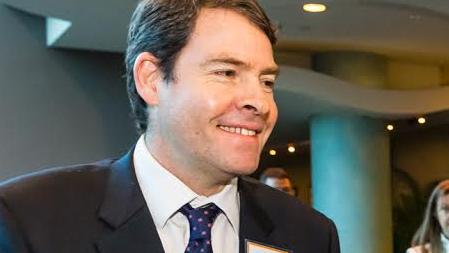Frydenberg rival on verge of energy scheme rule breach
Oliver Yates sat on the boards of two companies seeking to benefit from the government’s energy underwriting scheme.

Oliver Yates, a former Liberal Party member and independent challenger to Josh Frydenberg in the Melbourne seat of Kooyong, sat on the boards of two companies seeking to benefit from the government’s energy underwriting scheme but trashed the program on Twitter as an “election stunt”.
The Australian can reveal that Mr Yates is still a 15 per cent shareholder in one of these businesses. The holding means that Mr Yates would be in breach of section 44 of the constitution unless he dropped his stake in the company before any agreement being signed with the government.
Mr Yates, a former head of the Clean Energy Finance Corporation, was on the boards of UPC Renewables and Rise Renewables when the Morrison government called for Registrations of Interest (ROIs) for projects in December 2018 under its Underwriting New Generation Investments program.
Both companies were successful in being short-listed under the scheme, with 12 projects being unveiled by Energy Minister Angus Taylor last month that could attract government underwriting.
The projects included a renewable hydro pump project near Armidale, NSW, to be operated by UPC Renewables, as well as a renewable hydro pump project at Baroota, South Australia, to be operated by Rise Renewables.
Mr Yates yesterday confirmed that he was a director of UPC Renewables from February 1, 2018, until February 20, 2019, and a director of Rise Renewables from September 21, 2017, to January 30, 2019.
Mr Yates yesterday issued a statement to The Australian saying that Rise Renewables — in which he holds a 15 per cent shareholding — had “undertaken not to enter into any contract with the government while he remains a shareholder, to ensure compliance with S44”.
“Should Mr Yates be elected, he will dispose of his shareholding in Rise Renewables,” the statement said.
Mr Yates also said that, while he was on the boards of Rise Renewables and UPC Renewables, he was “aware of the registrations of interest” under the government’s underwriting scheme but took “no part in any decision-making”.
Despite both companies standing to benefit from the program, Mr Yates attacked the scheme on Twitter on March 25.
“Given they will most likely be in caretaker mode in the next fortnight, this is just an election stunt,” he said.
A spokesman for Mr Yates yesterday said that his reference to an “election stunt” was because nothing could be entered into before the caretaker period and that “any new incoming government would enter into its own energy policies”.
Constitutional experts yesterday said that Mr Yates’ 15 per cent stake in Rise Renewables raised the prospect of a potential breach of section 44 of the constitution.
But they argued there would be no conflict if Mr Yates was able to relinquish his shareholding before Rise Renewables entered into any agreement with the Commonwealth.
Constitutional expert at the University of Sydney, Anne Twomey, told The Australian: “Mr Yates holds shares in a company that does not yet have an agreement with the public service, but could do so in the future if the next government chose to give it a grant.
“On this basis, there would be no S44 problem unless ... the company entered into such an agreement in the future and Mr Yates still held shares in it.”
Dean of Law at the University of NSW, George Williams, said that Mr Yates was “in the clear so long as the company of which he is a shareholder does not enter into any agreement with the Commonwealth”.
“Once it does, if there is money involved, he could be in breach of section 44 of the Constitution”.


